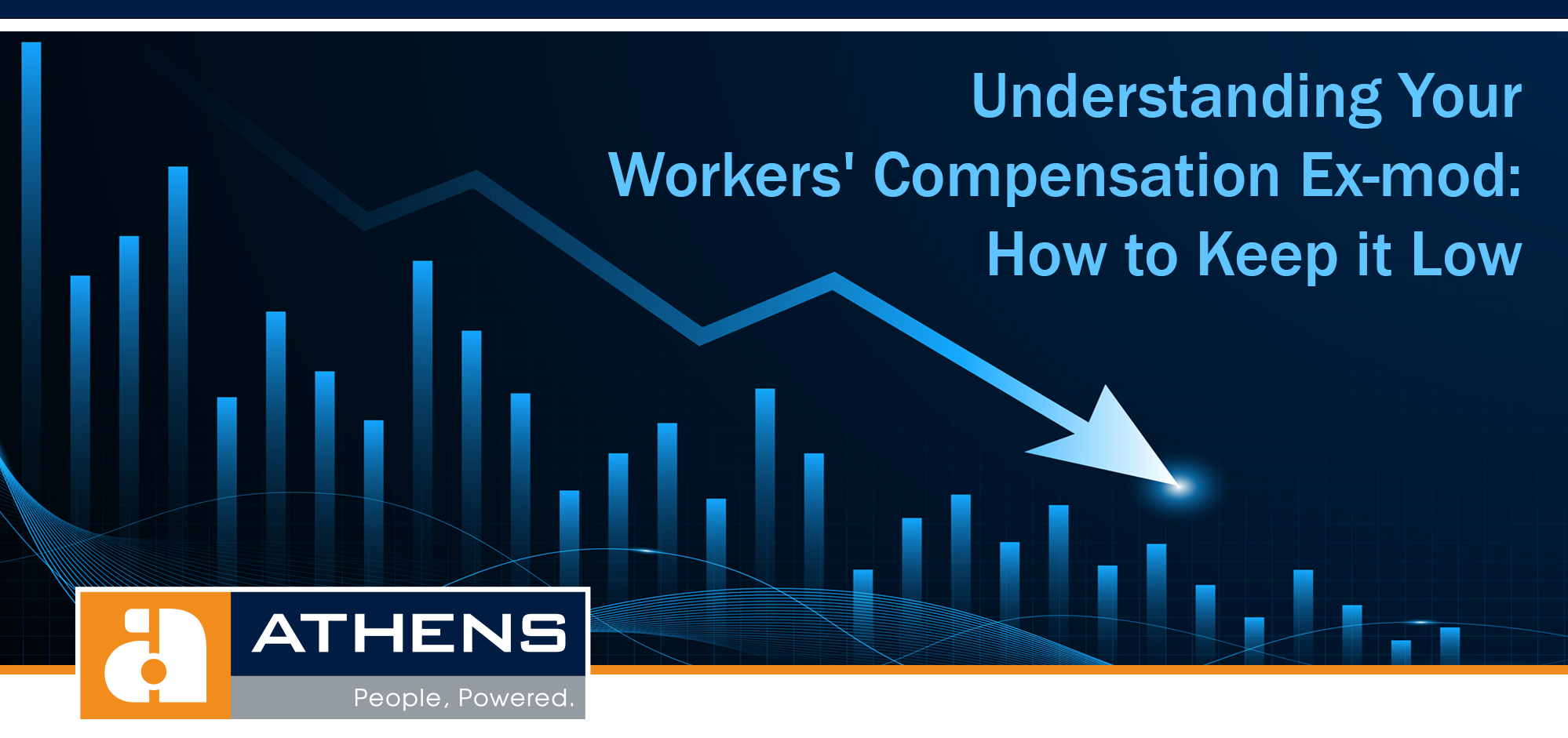How risk managers can lower premiums and improve performance—without guesswork
For risk professionals, few numbers carry more weight than your Experience Modification Rate (Ex-mod). It’s more than a line item—it’s a direct reflection of your claims’ performance and safety outcomes. And it impacts your Workers’ Compensation insurance premiums in a big way.
Whether you’re managing a single facility or overseeing multiple entities, understanding how your ex-mod is calculated—and how to control it—can help you reduce costs, win contracts, and strengthen your risk management story.
What Is an Ex-mod (and Why It Matters to Your Bottom Line)
Your ex-mod compares your actual loss experience to the expected experience for your industry and company size. It’s calculated by the National Council on Compensation Insurance (NCCI) or your state’s rating bureau using claims data over a three-year period, excluding the most recent policy year.
Here’s what that means in real terms:
- An ex-mod of 1.0 is average-your premiums reflect standard risk.
- An ex-mod of 1.2 means you’re paying 20% more than average.
- An ex-mod of 0.85 could earn you a 15% discount on your premiums. ¹
Even for mid-sized companies, that delta can mean tens of thousands of dollars annually, not to mention reputational advantages when bidding for contracts.
Frequency vs. Severity: What Really Impacts Your Ex-mod
Not all claims affect your ex-mod equally. The rating formula places more weight on frequency than severity. One $50,000 claim typically has less impact on your ex-mod than five $5,000 claims. Why? Because high frequency suggests systemic issues, not isolated events. ²
Reducing claim frequency is often the most effective—and overlooked—path to ex-mod improvement.
Five Strategies Risk Pros Can Use to Lower the Ex-mod
Here’s what risk managers and HR teams can do today to influence tomorrow’s rate:
1. Focus on Preventable Injuries First
Slip-and-falls, strains, and lifting injuries often drive frequency. Identify recurring injury types and invest in targeted training and ergonomic improvements. Safety doesn’t have to mean sweeping cultural change, just start with the data in front of you.
Athens Tip: We help clients spot patterns across departments, shifts, and roles—not just at the claim level, but across their entire book.
2. Implement (or Reboot) Your Return-to-Work Program
Lost-time claims hit your ex-mod hard. A structured return-to-work (RTW) plan—with a high focus on ex-modified duty—reduces indemnity payments and signals active claim management.
No ex-modified roles available? Partner with vendors that provide transitional work opportunities for clients who need them. ³
3. Push for Early Reporting
Reporting delays lead to ballooning costs. In fact, claims reported more than 7 days after the injury cost nearly 50% more on average. ⁴
At Athens, we prioritize same-day triage and rapid examiner involvement, helping employers act while the details and opportunities for correction are still fresh.
4. Use Your Loss Runs Strategically
Don’t just skim them. Loss runs are an underutilized tool for trend identification and risk forecasting. Set a regular cadence to review them—not just with your broker, but with your TPA’s claims team as well.
We offer customized reporting with actionable insights, not just raw data.
5. Proactively Close Stale Claims
Open claims, even low-cost ones—can drag your ex-mod down. Work with your claims team to review aged or inactive files and push for resolution where appropriate.
Our internal benchmarks show that clients who actively participate in quarterly claim reviews see ex-mod improvements within 12–18 months.
Ex-mod Control Is Strategy, Not Luck
If you’re treating your ex-mod like a weather report—just checking it once a year—you’re missing opportunities to improve performance and reduce cost. The most successful risk teams treat it as a year-round metric with levers they can pull.
At Athens Administrators, we partner with clients to make those levers easier to find—and more effective to pull. From safety planning to tailored claim strategies, we don’t just watch the numbers; we help you change them.
Let’s talk about how your current claim practices are impacting your ex-mod—and what we can do about it.
References
National Council on Compensation Insurance (NCCI). “Experience Rating Explained.” https://www.ncci.com/Articles/Pages/II_ExperienceRating.aspx
NCCI. “Split Point: How Frequency Impacts the Ex-mod.” https://www.ncci.com/Articles/Pages/II_ExperienceRatingSplitPoint.aspx
WorkCompCentral. “Ex-modified Duty Programs Reduce Costs and Improve Outcomes.”
National Council on Compensation Insurance (NCCI). “The Relationship Between Time of Injury Reporting and Claim Cost.” https://www.ncci.com/Articles/Pages/II_ClaimReporting.aspx

